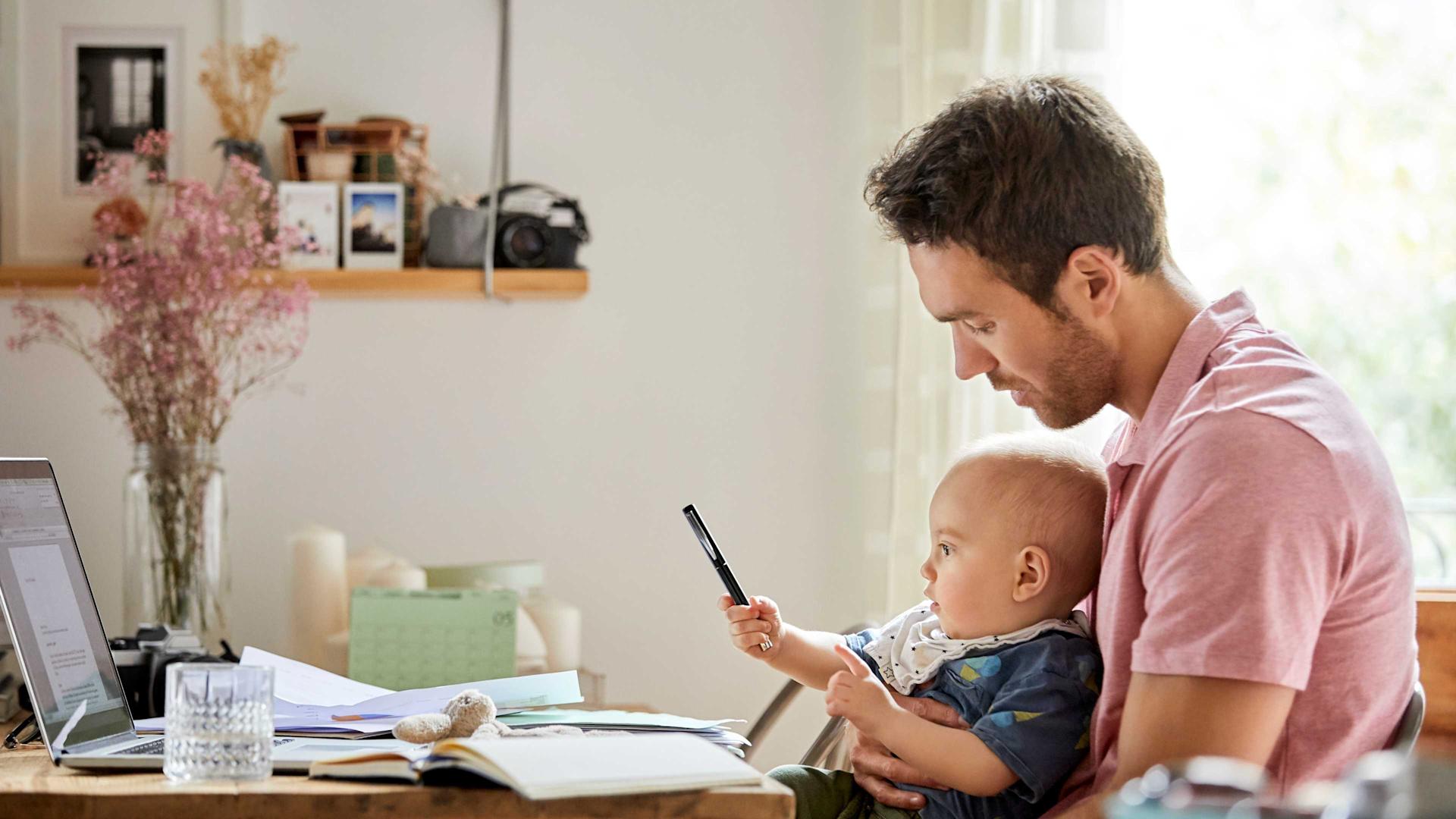
Migros Bank
What does 2026 have in store on the stock market?
If the AI bubble bursts, will the gold price rise even higher? Sacha Marienberg ventures a forecast for 2026.
navigation

Migros Bank
When children come along, living costs rise sharply. We explain how and where families can optimise their finances.
A well planned budget helps you to understand and manage family finances. First of all, work out what your total household income is. Then calculate how much you spend each month on rent and utilities as well as on food, phone and internet subscriptions, insurance (including health insurance), transport and leisure activities.
The best way to go about this is to collect receipts for all household income and expenditure over a period of a few months so you can work out an average figure. There is a wide range of templates that can help, for example from budgetberatung.ch.
Having a financial cushion is important for everyone, but especially for families: with children in the household, unforeseen costs can arise quickly and may be high too. The level of cash reserves needed depends on your regular outgoings.
You should have enough money in your savings account to cover four to six months of outgoings. Ideally, you should create three pots: one for minor emergencies, such as medical appointments or faulty household appliances, a second for taxes and insurance, and a third for occasional purchases. You should top up these pots as much as your budget allows.
Once you’ve set aside sufficient reserves, any surplus money should be saved. For short-term savings goals, it’s best to put your cash in a savings account. If you won’t need the money for at least three years, then a bank savings plan is a good idea.
With this option, a fixed amount is debited from your current account on a monthly or quarterly basis and invested in a fund. If you’d like to build up long-term assets, for example for your children's education, the equity allocation can be higher.
Would you like to have a few thousand Swiss francs more in your bank account at the end of the year? You can do so by cutting your fixed costs, for example by changing your telephone provider or health insurance company.
When buying everyday goods, look out for special offers or opt for inexpensive own brands, such as M-Budget products. Savings can also be made when eating out. By the way: If you stop spending CHF 3 every day on espresso in the work canteen, you’ll save over CHF 600 a year.
Substantial savings can be made when choosing your private account. Account management and bank card (debit and credit cards) charges vary greatly from bank to bank, especially if multiple cards are required, which is often the case for families.
This can soon add up to a few hundred Swiss francs a year. Comparing account fees carefully is definitely worthwhile.
To ensure financial stability, it’s advisable to cover yourself against a number of existential risks, above all the inability to work, for example due to an accident or mental illness.
Disability insurance protects your personal income and ensures you remain solvent if you have to make a claim. It’s also wise to insure yourself against the risk of death, especially if you own a home with your partner or only one of you is in employment.
The surviving partner can then use the payout to at least repay the second mortgage, should it be necessary. For optimal risk cover, we recommend seeking advice from a specialist.
The sooner you deal with personal retirement planning the better. Families in particular face risks of pension gaps in their old age and survivors’ insurance and pension funds, for example after taking career breaks (parental leave) or due to working part-time.
You can build up additional assets by investing in private retirement plans, whether that’s by making regular deposits into a pillar 3a account or opening a savings plan with a bank. From the age of 50, it’s also worth considering purchasing additional retirement benefits. This also helps to close up any pension gaps.
Whether you’re interested in science, sustainability, health or saving money – our team of experts is on hand with practical tips and tricks.